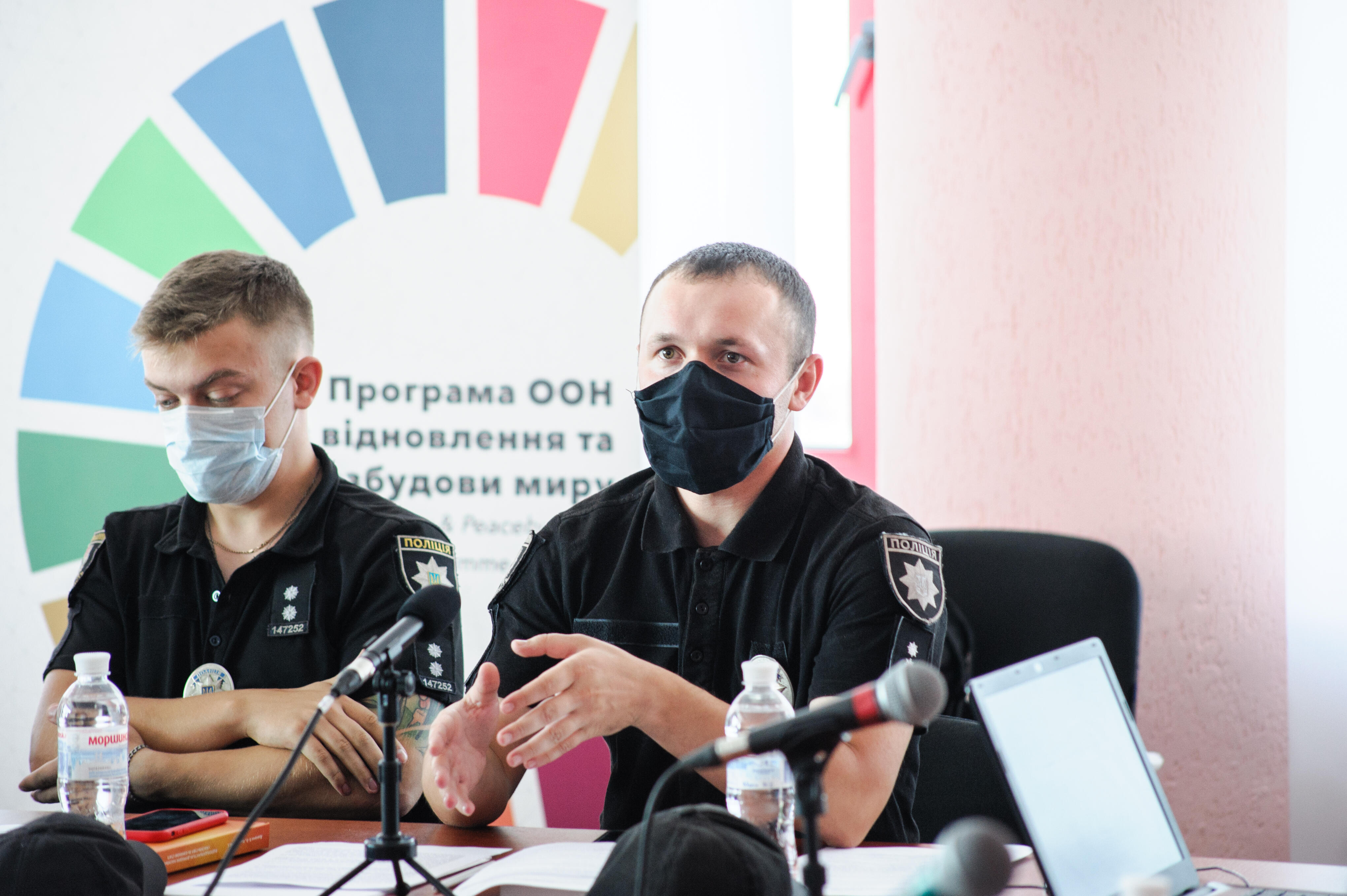A one-day workshop ‘Practices of application of mechanisms for protection of victims of domestic violence in the Luhansk Oblast was held in Severodonetsk, Luhansk Oblast.
The workshop brought together representatives of the main entities of the system of legal mechanisms for the protection of victims in the city, namely the police, courts, probation, social services and authorized persons. UNFPA and UNDP experts also attended the meeting.
The purpose of the workshop was to discuss ways to improve the interaction of entities in the application of mechanisms to protect victims and develop ways to improve it.
Namely:
Bringing perpetrators to justice for non-compliance with emergency protection orders or failure to notify of the place of their temporary stay;
Discussion of the algorithm of interaction of entities in the course of issuing restrictive orders to perpetrators;
Local and national practices of criminal prosecution of perpetrators;
Application of restrictive measures against domestic violence suspects and perpetrators;
Local practices and problematic issues of preventive registration of perpetrators and conducting preventive activities with them;
Local and national practices and problematic issues of referring perpetrators to programs for perpetrators.
Similar workshops have already been held in Rubizhne, Kreminna and Mariupol, and are scheduled in a number of cities in the Donetsk Oblast.
In addition to agreeing on current controversial aspects, the discussions will result in the finalization of the Procedure for Interaction of Entities Implementing Measures on Prevention and Combating of Domestic and Gender-Based Violence, in connection with the issuance of restrictive orders to perpetrators.
The event was held within the United Nations Recovery and Peacebuilding Programme, which is implemented by four UN Agencies: the United Nations Development Programme (UNDP), the United Nations Entity for Gender Equality and the Empowerment of Women (UN Women), the United Nations Population Fund (UNFPA) and the Food and Agriculture Organization of the United Nations (FAO).
The Programme is supported by twelve international partners: the European Union (EU), the European Investment Bank (EIB) as well as the Governments of the United Kingdom, Denmark, Canada, the Netherlands, Germany, Norway, Poland, Switzerland, Sweden and Japan.


